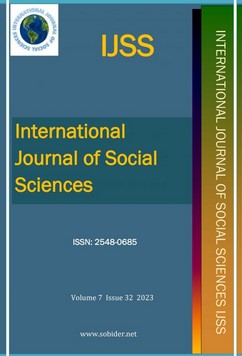İktidar ve Cinsiyet Arasındaki İlişkiye Dair Foucault ve Bourdieu’nün Analizi
Foucault and Bourdieu’s Deconstruction of the Relationship Between Power and Gender
Author(s): Eda DenliSubject(s): Gender Studies, Social Philosophy, Contemporary Philosophy, Sociology of Culture, Social Norms / Social Control
Published by: SD Yayınevi
Keywords: Foucault; Bourdieu; Gender; Power;
Summary/Abstract: The role of Foucault and Bourdieu in gender studies and in providing us with an understanding of power relations in society is very important. Taking the phenomenon of power beyond individual behavior and structure, Foucault stated that it is more important to understand how power works than what it is. Drawing attention to the fact that power has not only a restrictive but also an encouraging functioning, Foucault also claims that the phenomenon of power is too complex to be reduced to individual choice, class or the structural requirements of the capitalist system. He also suggests that power turns into a discursive formation that functions by setting the agenda, limiting discussions, defining what truth is, correcting, normalizing, merging with knowledge and therefore deepening itself with both epistemological and ethical judgments, such as right-wrong, good-bad. Power relations are not only about the ability to control or influence others, but also about the ability to resist or challenge domination. Therefore, power relations are characterized by conflict and tension, as individuals and groups struggle to maintain or challenge their dominant positions. Therefore, power relations also refer to the ability of individuals and groups to shape their own ways of thinking and acting. In this way, power relations are both a reflection and a means of reproducing social and cultural norms and values. Bourdieu's definition of power also emphasizes the importance of cultural capital in the acquisition of power. According to Bourdieu, power is a state obtained through education, socialization and cultural experiences. This means that those who have access to cultural resources, such as education and exposure to high culture, are more likely to achieve power and influence in society. In addition, individuals from higher social classes have more power and influence, as they have October greater access to cultural capital.
Journal: Uluslararası Sosyal Bilimler Dergisi
- Issue Year: 7/2023
- Issue No: 31
- Page Range: 30-40
- Page Count: 11
- Language: Turkish

